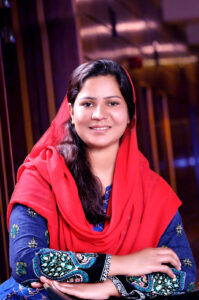Posted to Sister Zeph’s Journal
By Sister Zeph
On 28 March, 2015
The year 2014 marked a grim chapter in the history of Pakistan’s polio program, as the number of confirmed cases surged to 296, the highest count since 1998 (source: Dawn.com, January 1, 2015, 01:29 PM).
Tragically, many polio workers have lost their lives while trying to administer polio drops to children. This is because some people in Pakistan harbor the misconception that these drops are harmful to their children.
The root issue here is a lack of knowledge, resulting in a reluctance to ask critical questions. It’s disheartening to witness even well-educated individuals perpetuating such beliefs. Just yesterday, I overheard a group of men in an office claiming that administering these drops to their children would render them infertile. For the first time in my life, I found myself unable to contain my anger.
I confronted them and posed several questions: Who was the source of this information? Did they possess any evidence to substantiate this claim? Had they heard it from a doctor or scientist? Were similar claims being made in other countries, and if so, why was Pakistan the only nation experiencing a surge in polio cases? Why were they resisting an initiative designed to protect their children’s health?
Why was Pakistan the focus of this effort? What unique power did we possess that the World Health Organization sought to take from us by vaccinating our children? Why were our doctors, politicians, and social workers silent on this matter, with only those lacking knowledge voicing opposition?
Wisdom arises from learning, and their inability to answer my questions underscored the baseless nature of these rumors. They are aware that logic cannot support their claims, and thus, these rumors are circulated primarily among those who lack the knowledge to question them. The ability to ask “why, how, who, when, where” arises when we cultivate the capacity to think critically, a process facilitated by reading books and staying informed about current affairs and societal issues.
I implored these men to recognize that their children are our collective responsibility, and when making decisions concerning them, wisdom must prevail. Wisdom, in turn, stems from knowledge.
Returning home, I posed the same questions to my students, many of whom are mothers or soon-to-be brides. It is crucial for them to understand the significance of the polio vaccine for their children’s well-being. Convincing them to read books can be a challenge, but I emphasized that without such knowledge, they would be forced to blindly trust others’ assertions. I encouraged them to learn to question, to think critically before accepting any claims as truth. This approach empowers them to make informed decisions in their lives.
I stressed that the polio vaccine is a lifesaver and a fundamental right for every child worldwide. Failing to provide it to our children would be an irreversible mistake.
As I spoke, their eyes sparkled with determination, resolved to ensure their children receive polio drops and to engage in reading and learning. I reminded them that our children are our responsibility, and to discharge this responsibility effectively, we must equip ourselves with knowledge. Knowledge, in turn, is acquired through reading and learning. Let us strive to create a brighter future, one that both our past and future generations can be proud of.

